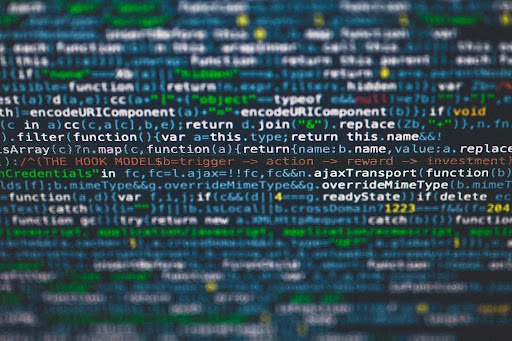5 Best Programming Languages To Learn

Computer programming is an ever-expanding field, and software developers are in high demand. The Bureau of Labor Statistics projects that the need for computer and IT occupations will grow by 13% in the next decade. The median pay for software developers was $110,140 in May of 2020, with the projected job outlook until 2030 being 22% better than on average. Becoming a programmer means entering a field with great pay and excellent prospects for the future, but if you've never coded a website or built an app, you need to learn the building blocks before you can land a great job in programming.
Related: 2020’s Most In-Demand Software Developer Skills
Why Should You Learn Programming?
By learning a programming language today, you're investing in your future. Our world is becoming ever more digital, from companies expanding their web presences to games offering new, interactive VR experiences and beyond. Programming languages open the door to a career with infinite possibilities. After learning one of these languages, you can code apps or build websites or design games, among many other opportunities in tech. And coding isn't exclusive to the IT industry. Companies in every sector are searching for workers with programming skills. You can land a well-paying job in any industry that interests you or even earn well as a freelancer and take the opportunity to travel the world while working from your laptop.
What Are the Best Programming Languages To Learn?
You have many programming languages to pick from when you're learning to code, and each has its own ideal use case. Depending on what you want to do, some languages will be better to learn than others. We'll introduce you to the top five best programming languages to learn in 2021 and what the use case is for each one, so you'll know exactly where to start.
Python
Beginning programmers looking for a first language to learn will love Python. This language has a clear, intuitive syntax, and its simplicity means you can get up and running faster than with any other language. The "Hello World!" application is simple and easy executable code to write, which is why it's the first code taught to most programmers. It takes 4 of 5 lines to execute in other programming languages, but only one in Python.
Python is also an interpreted programming language, which means that, unlike compiled languages like Java or C++, you can run each line of code immediately after to write it and see the results. You get instantaneous feedback instead of having to write an entire program, only to find out after that you forgot a character somewhere among all that code! So it comes as no surprise that when 909 US developers were asked which programming language was the easiest to learn, they named Python second only to HTML.
Due to its versatility, Python is in demand across many different industries and sectors, from data science and machine learning to recruiting, healthcare, marketing, and education. It's used by tech giants like Google as well as by small businesses and fledgling startups. And it even ranked as the #2 most in-demand programming language of 2020, based on the number of job postings for Python developers on LinkedIn.com. All this makes Python a great programming language to learn, especially for beginning developers and those who want to remain marketable in the highly competitive field of software development.
Go
Google engineers created Go to make their software development process simple, reliable, and efficient. The syntax is simple for beginners to grasp, as the language does not impose strict object-oriented design structures and has no classes. It also does not support inheritance, meaning that programmers can easily modify Go code without grappling with the domino effect of children inheriting from parent classes.
The standard library packaged with Go is comprehensive without being overly complex. Developers can use it to develop robust programs without needing to rely on complicated second libraries. Go also utilizes goroutines instead of threads, which makes the language faster and more efficient. Java allows you to runs thousands or maybe tens of thousands of threads at a time. Meanwhile, you can run hundreds of thousands or even millions of goroutines with Go. This makes Go a powerful language, but it also keeps code neat, clear, and succinct.
While Go is a relatively new language, large international enterprises like Uber, Intel, and Alibaba already utilize it. And of course, if you'd like to work for Google, then Go's an excellent language to learn. It also affords freelancers a generous hourly rate, even those just beginning their careers. According to Upwork statistics, the average hourly rate for Go developers is $44/hr, with many clients willing to pay more than $150/hr. So even if you aren't yet ready to work as a developer full-time, you can make good money on the side as a Go developer.
JavaScript
JavaScript is the world’s most-used programming language. It was also the most in-demand IT skill of 2020, with over 70% of companies looking for a JavaScript coder. Stack Overflow's 2020 Developer Survey also rated JavaScript as the most popular language among developers for the eighth year running, with 70% of respondents reporting that they had used JavaScript within the last year.
If you'd like to work in front-end web development, then JavaScript is an essential programming language to learn, right along with HTML and CSS. The majority of websites, including giants like Facebook, Twitter, and Gmail, utilize JavaScript in their site infrastructure. And while JavaScript may be best known as a front-end language for browsers, you can also use it to build scalable network applications through Node.js. Not to mention, you can code full-scale games in either external game engines or browsers using JavaScript.
JavaScript is also another beginner-friendly programming language with a simple, flexible syntax. And given that all you need to code JavaScript is a text editor and a browser, the bar to entry is also very low when it comes to learning to code in this language.
C#
C#, or "C Sharp," was built by Microsoft as part of the .NET framework for creating Windows applications. It's an object-oriented language inspired by the C language but with improvements made upon the original C. Since its syntax is similar to other C-derived languages, it's easy to pick up for programmers who already know another C language.
C# is an essential language to know for Windows app development. Developers also use it while creating mobile apps and 2D and 3D games on the Unity gaming engine. So if you're interested in VR development, you should also learn C#, since 59% of VR developers code in the Unity engine.
Swift
Much like Go, Swift is a relatively new programming language. Apple announced its creation in 2014, and it's an essential language to know if you're interested in developing applications for iOS or macOS. Swift is a language built and optimized for Apple operating systems, from iPhones and iPads to MacBook's, Apple Watches, and Apple TVs.
Swift builds upon Objective-C, and Apple originally intended for it to replace other C-based languages like C and C++. With Swift, Apple attempted to address problems developers had with other C-based languages, such as the learning curve caused by complex syntaxes and conventions. They intentionally designed Swift to be easy to learn, read, and understand, making it another excellent choice for beginning programmers.
Related: Is It the Right Time to Begin a Coding Bootcamp?
Want world-class support while you’re learning a programming language? Sabio offers an intensive, multiphase learning program that teaches you everything you need to know to become a developer, plus free professional development for life!
Why You Should Learn With Sabio
At Sabio, we offer comprehensive education for software developers. Whether you're a coding bootcamp veteran or have yet to learn your first language, we have plenty to offer you.
If you're a programming beginner, we offer free courses in HTML & CSS and JavaScript Foundations. The courses are self-paced, so you can start when you want and finish as you're able. And together, they'll give you a solid foundation in the essentials of web development without you ever having to pay a dime.

And for those looking for more comprehensive, intensive training, we offer a unique, multi-phase training program that ensures you truly learn and embrace everything you'll need to know to become a successful software developer. These phases include:
- An info session. These free weekly info sessions tell you everything you need to know about Sabio's Coding Bootcamps. You'll speak with senior instructors from our team and can ask any questions you have about our program and its structure, as well as job placement resources and financing options.
- PreWork. PreWork is a free, four-week online program that introduces all the materials and skills you'll need to complete our coding bootcamp. You'll get a solid foundation in front-end web development by focusing on JavaScript, HTML, CSS, and responsive design.
- Cohort. In this phase, you'll attend our 13-week coding bootcamp, which consists of two parts. The first part consists of 11 weeks of pure coding, where you'll learn how to think, create, and develop like a professional software engineer. You'll learn everything from client-side frameworks to database architectures to APIs and tools and gain all the hard and soft skills you'll need for a job in software development. The second part involves two weeks of intensive job preparation. You'll learn how to run 2-week coding sprints, be involved in daily standups, and give a Code Talk, where you'll learn to talk like a software engineer and present your code to large groups.
- Alumni Room. If you live near our Irvine or Culver City Campus, you can drop in at our Alumni Room, a space dedicated to and exclusively for our alumni. Here, our staff and campus resources help you work on your code or complete your job search. We even have "Brown Bag Lunches" for alumni, during which a Sabio instructor will teach you new, advanced concepts. You can ask them any questions you have about your job search and get any other help or advice you might need.
- Hackathons. Each quarter, you have the opportunity to take part in a large-scale industry Hackathon with Sabio. Hackathons are an invaluable opportunity to add experience to your resume while competing for cash prizes and networking with other developers and industry insiders.
- Graduation. You'll celebrate completing training with family, friends, and cohorts at a graduation ceremony that features alumni speakers and tasty food and drinks. You'll even go home with a Sabio hoodie.
- Professional development for life. We run a free, monthly professional development series for all of our alumni, from January through October. These workshops and lectures feature industry speakers like Tom Occhino from Facebook and experienced engineers from companies like Slack and GitHub. And you can attend these professional development workshops for life! With Sabio, you'll never stop learning what you need to succeed as a developer.
- Launch your tech startup. We even help our alumni launch tech startups through our cohort build and offer professional development workshops and courses that keep startup founders current on industry trends.
You can even earn a Bachelor of Science degree with Sabio, through our partnership with Alliant International University. And we offer financing options for our students that make learning attainable for anyone, like loans through Sallie Mae and Ascent and our deferred tuition program, where you don’t make any payments for your education until you land a job in tech.
Related: The ROI of a Coding Bootcamp vs Online Training

Conclusion
The increasing digitalization of our world means that programming skills are in high demand. Software developers are well paid and enjoy excellent prospects for the future. When you learn a programming language, you're taking the first step towards an exciting and rewarding career in an ever-expanding field. And attending the right bootcamp can give you the tools and skills you need to land a great programming job right out of the gate, even if you've never coded before.
Are you ready to start an exciting new career as a software developer? Schedule a 10-minute one-on-one with Sabio to learn how their unique training program can help you launch a successful career as a programmer today!
Posts you might like
- Navigating the Tech Job Market: Insights from Sabio Alumni and Cybersecurity Opportunities
- Embracing the Climb: A Leader's Growth Mindset Journey
- This is the Perfect Time to Dive into Coding and Automation, This is Why!
- Troubleshoot Like a Pro: The Art of Debugging in Programming
- Beyond Bootcamp: Diverse Career Avenues in Tech
- Spotting Burnout in Tech Job Hunts: 6 Warning Signs & Ways to Overcome It
- Get Hired: Essential Knowledge for Emerging Programmers
- 7 Steps to Build a Personalized Continuous Learning Plan for Coders
- Empower Your Journey: Benefits of Remote Code Bootcamps
- Proactive Steps: Daily Rituals for the Job-Hunting Programmer
- Don't Sabotage Your Tech Job Search: Mistakes to Skip
- Unleashing Opportunities: How Bootcamp Career Services Propel Success
- From Lines to Offers: How Your Coding Experience Shapes Market Value
- Optimizing Success: Your Attitude in Coding Bootcamps
- Roadmap to Success: Tech Job Hunt with a Coding Bootcamp Mentor
- Crafting Your Tech Startup Roadmap from Bootcamp Grad
- Tips for Creating a Resume That Gets Interviews for High-Experience Jobs After Coding Bootcamp
- Accelerate Your Career: Embrace Bootcamps for Real-World Programming Skills
- The Coding Craft: Essential Skills Learned at Bootcamps
- Bootcamp Bonds: Tapping into Networks for Tech Employment
- Coding Confidence Booster: The Benefits of Coding Mock Interviews
- Programming by the Clock: The Impact of Effective Time Management
- Coding Freedom: The Value of Learning at Your Own Speed
- Calm Code Journey: Overwhelm-Free Bootcamp Success
- Polish Your Pitch: Tech Interview Communication Essentials
- Inside the Loop: Coding Bootcamps and Tech Industry Strategies
- From Zero to Hired: Decode the Experience Question in Tech Interviews
- Solving the Puzzle: Refining Your Problem-Solving as a Programmer
- The Art of Practicality: Using Coding Languages Without Overlearning
- Practice Makes Perfect: The Key to Software Engineering Brilliance



